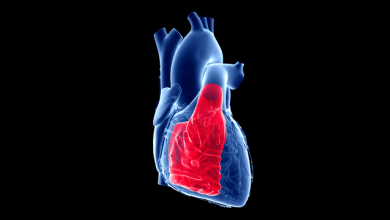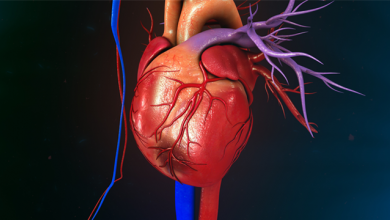Search results
Author(s):
Abhiram Prasad
Added:
3 years ago
Takotsubo cardiomyopathy (TC) or syndrome was first described more than 2 decades ago by Dote and colleagues in Japan, but has since been increasingly recognised around the world.1 Takotsubo is the Japanese name for a the traditional octopus trapping pot that has a round bottom and narrow neck, resembling the appearance the left ventricle during the acute presentation (see Figure 1).2 Although,…
View more
Author(s):
Martin H Deininger
,
Juergen Buttler
Added:
3 years ago
The association of electrocardiographic (ECG) abnormalities and intracerebral, particularly aneurysmal subarachnoid haemorrhage (SAH) is a well-known phenomenon. ECG alterations are observed in 50-100% of patients during the acute stage of SAH. Frequently, these effects are clinically not important. Some SAH patients, however, have structural cardiac damage with elevation of creatine kinase…
View more
Takotsubo Cardiomyopathy
Author(s):
Esha Sachdev
,
C Noel Bairey Merz
,
Puja K Mehta
Added:
3 years ago
Article
Author(s):
Mary N Sheppard
Added:
3 years ago
Takotsubo syndrome is an acute reversible heart failure syndrome, which is increasingly recognised by coronary angiography for patients with acute ‘cardiac’ chest pain.1 It is a distinct disease entity from acute coronary syndrome, although the initial presentation has similar features to either ST elevation myocardial infarction (STEMI) or non-ST elevation myocardial infarction (NSTEMI). Early…
View more
Author(s):
Konstantinos Bratis
Added:
3 years ago
Takotsubo syndrome (TTS) is an acute, profound, but reversible heart failure syndrome, usually but not always triggered by physical or emotional stress. To date, the exact pathogenic mechanism of this syndrome remains unclear; however, several hypotheses involving vascular mechanisms (i.e. abnormal coronary epicardial or microvascular vasoreactivity),1-3 endocrine and gender-related mechanisms (i…
View more
Author(s):
Martin H Deininger
,
Juergen Buttler
Added:
3 years ago
The association of electrocardiographic (ECG) abnormalities and intracerebral, particularly aneurysmal, subarachnoid haemorrhage (SAH) is a well-known phenomenon. ECG alterations are observed in 50-100% of patients during the acute stage of SAH.1-3 Frequently, these effects are clinically not important. Some SAH patients, however, have structural cardiac damage with elevation of creatine kinase…
View more
Abortion of Acute Myocardial Infarction - The Best Possible Achievement of Reperfusion Therapy
Author(s):
Roberto Sciagrà
Added:
3 years ago
Article
Author(s):
Chiara Di Filippo
,
Beatrice Bacchi
,
Carlo Di Mario
Added:
3 years ago
Takotsubo syndrome (TTS) is a transient form of acute heart failure that mimics an acute coronary syndrome (ACS), with comparable acute adverse outcome.1 Many hypotheses have been formulated, but the pathophysiology of TTS is still not fully understood. Recently, it was demonstrated that specific alterations in neurological response and sympathetic activation after emotional stimuli are present…
View more
Author(s):
Kavita Prasad
Added:
3 years ago
Role of Mental Stress in Cardiovascular Disease
The pathophysiology of how mental stress affects and modulates the cardiovascular system is incompletely understood. Chronic stress has long been suspected to be a risk factor for cardiovascular disorders (CVD), either through direct or indirect mechanisms.1,2 Stress is known to activate two biological systems: the hypothalamic-pituitary-adrenal…
View more













